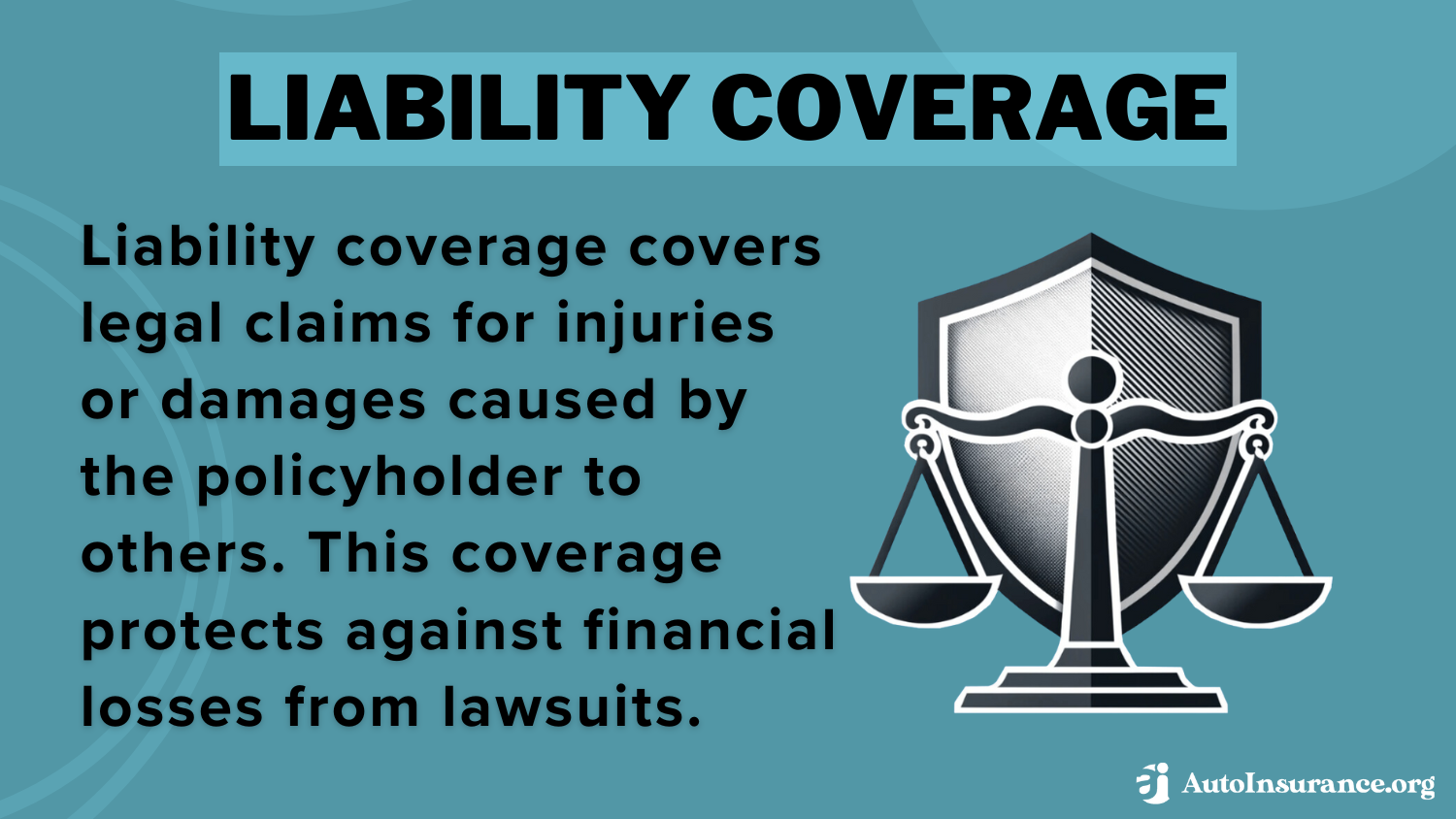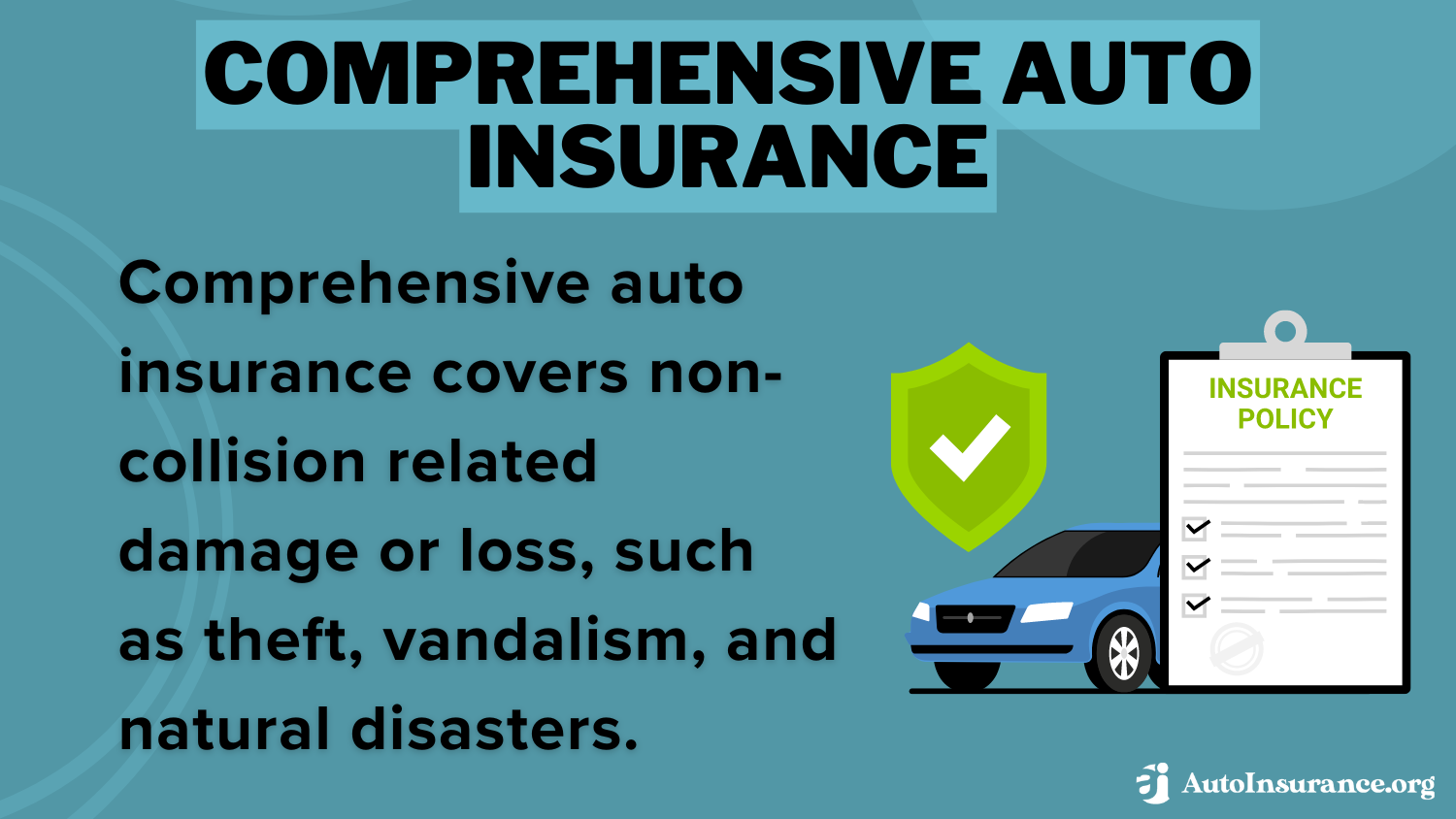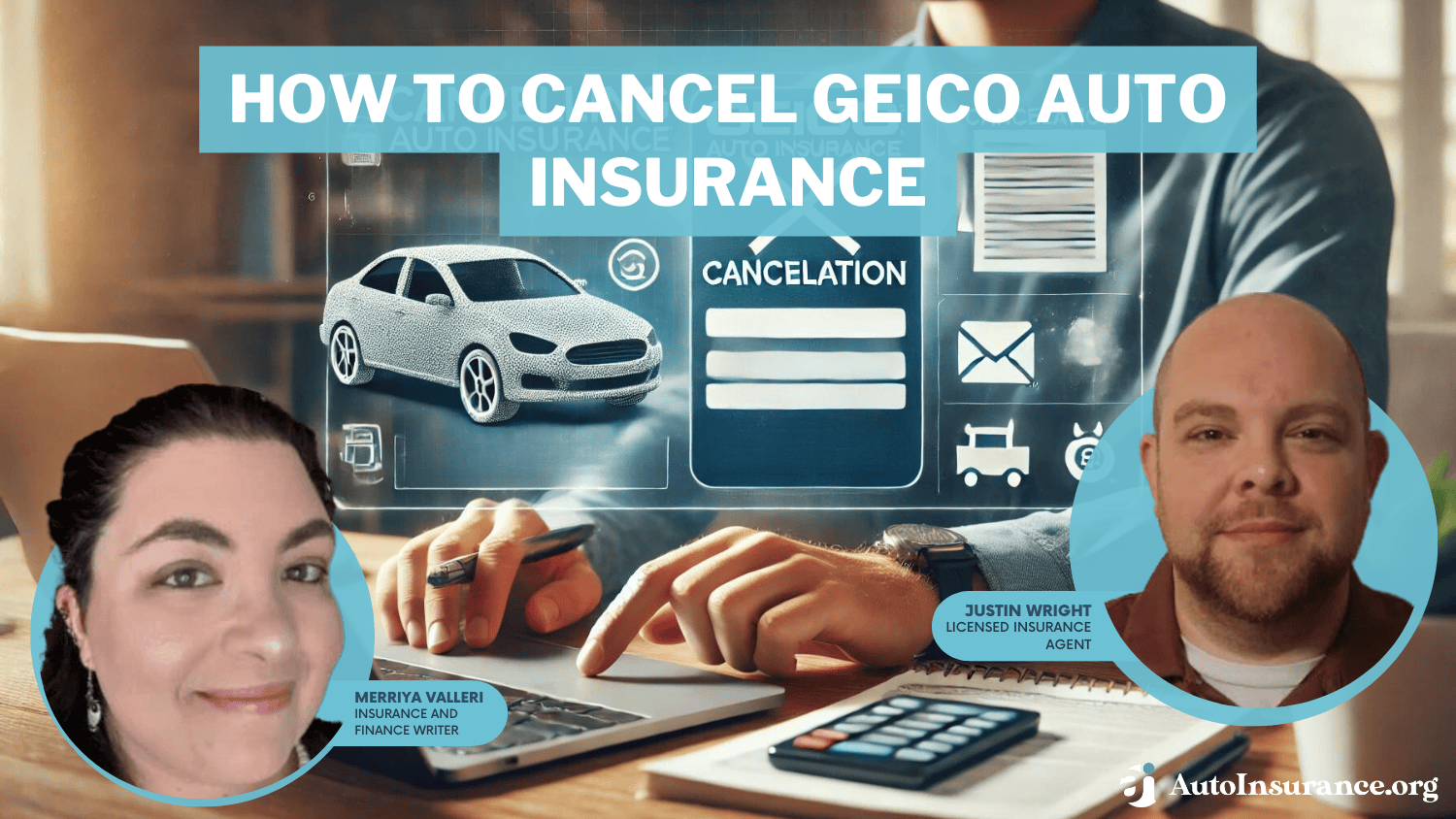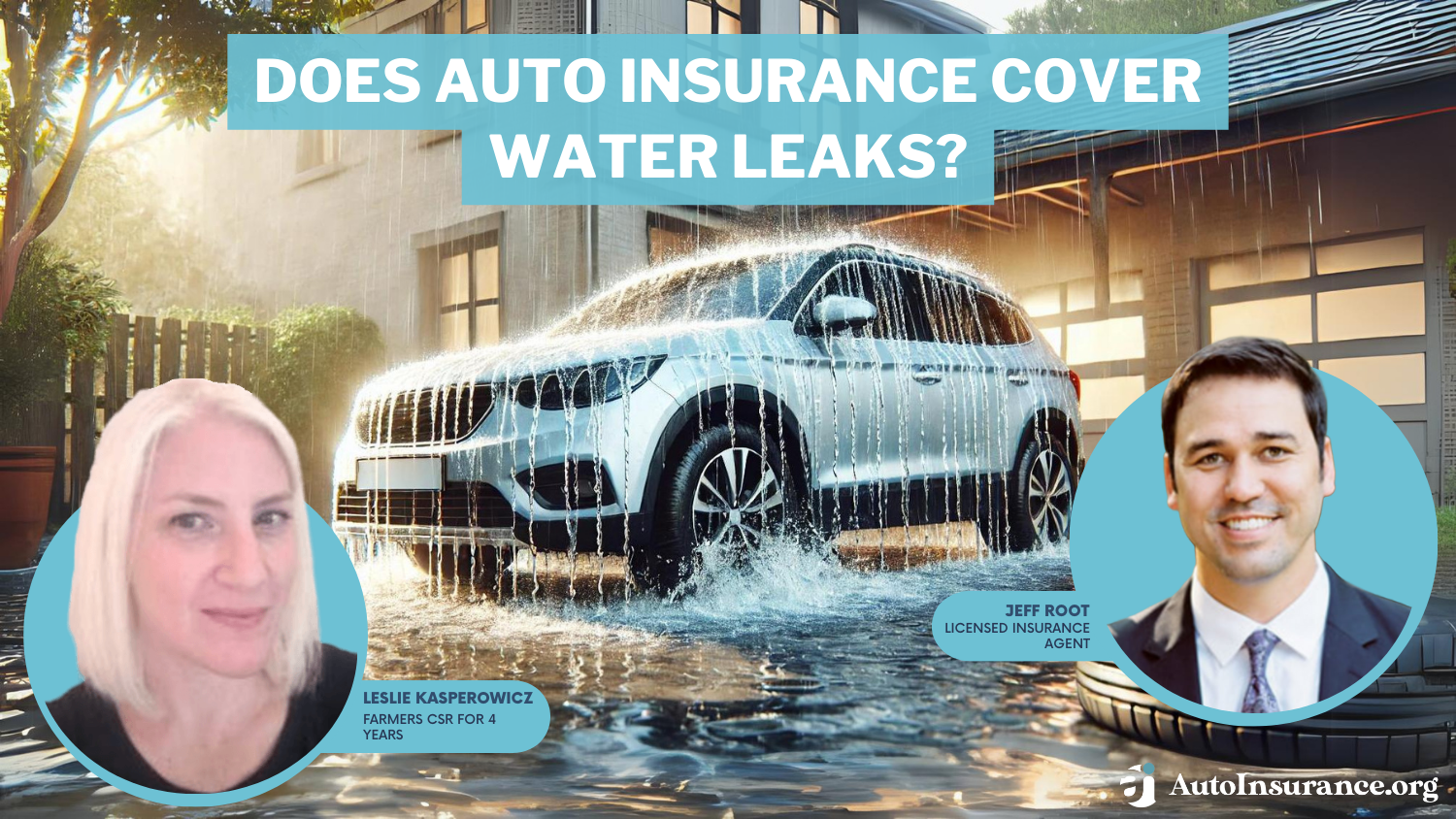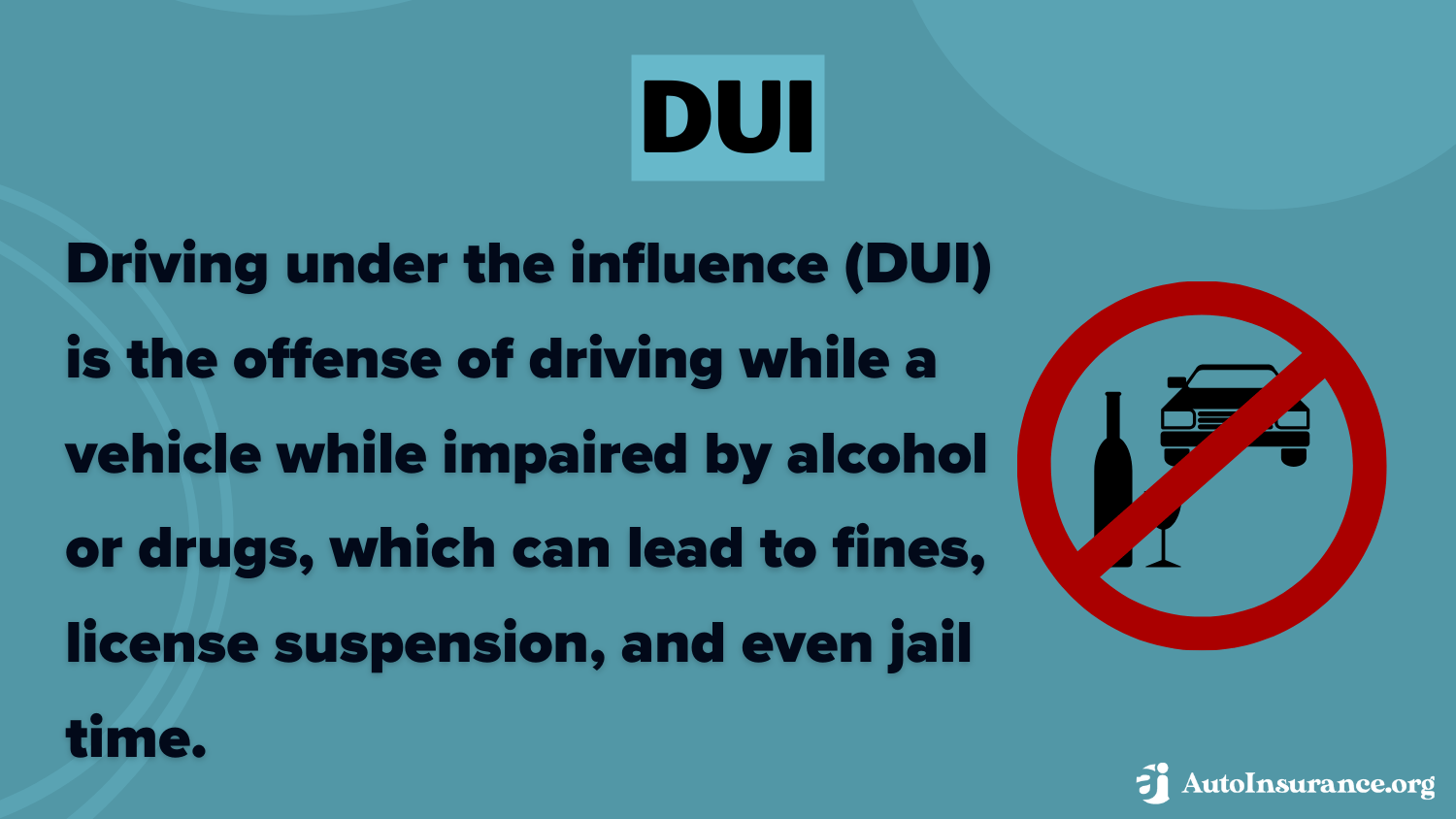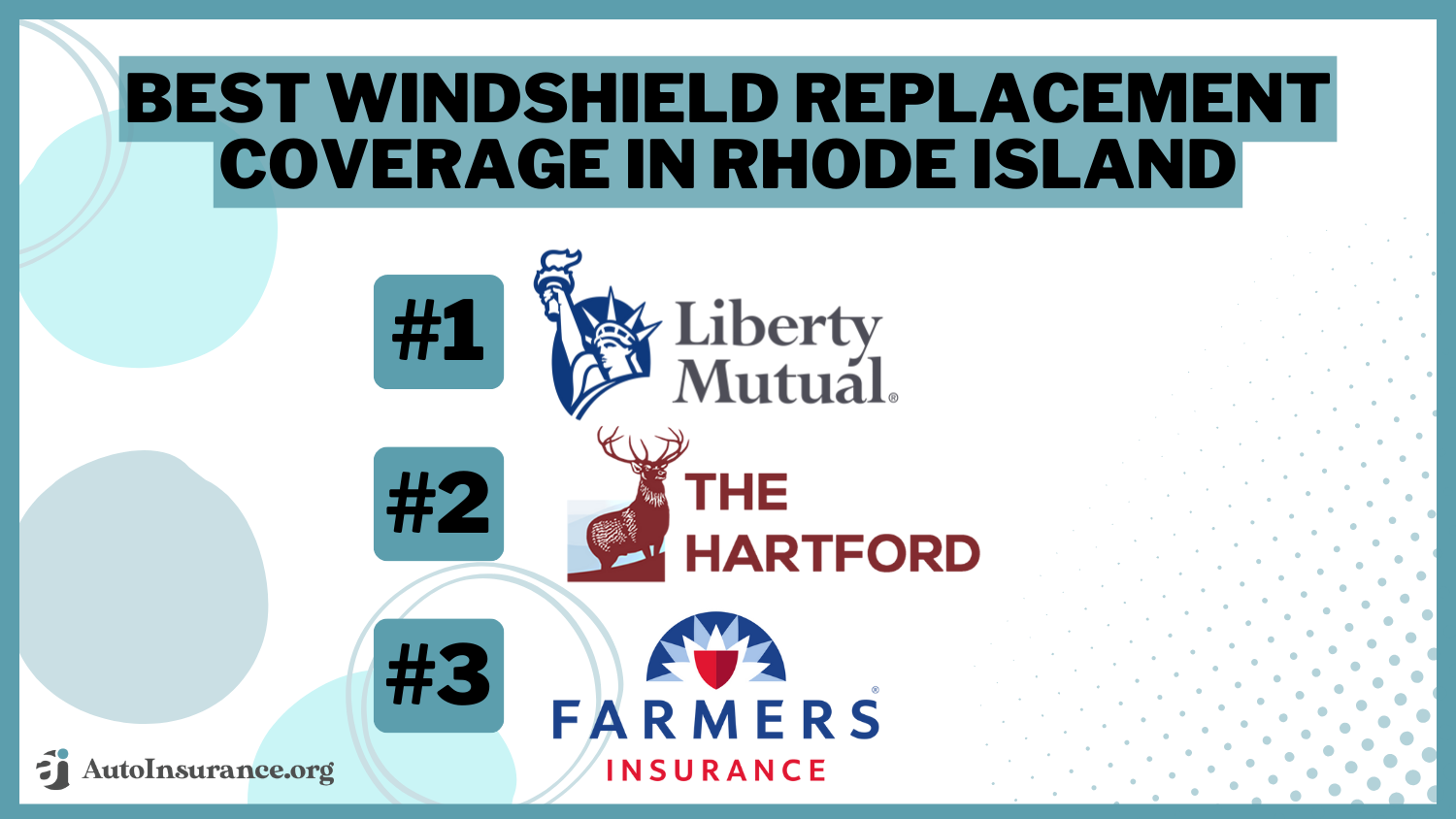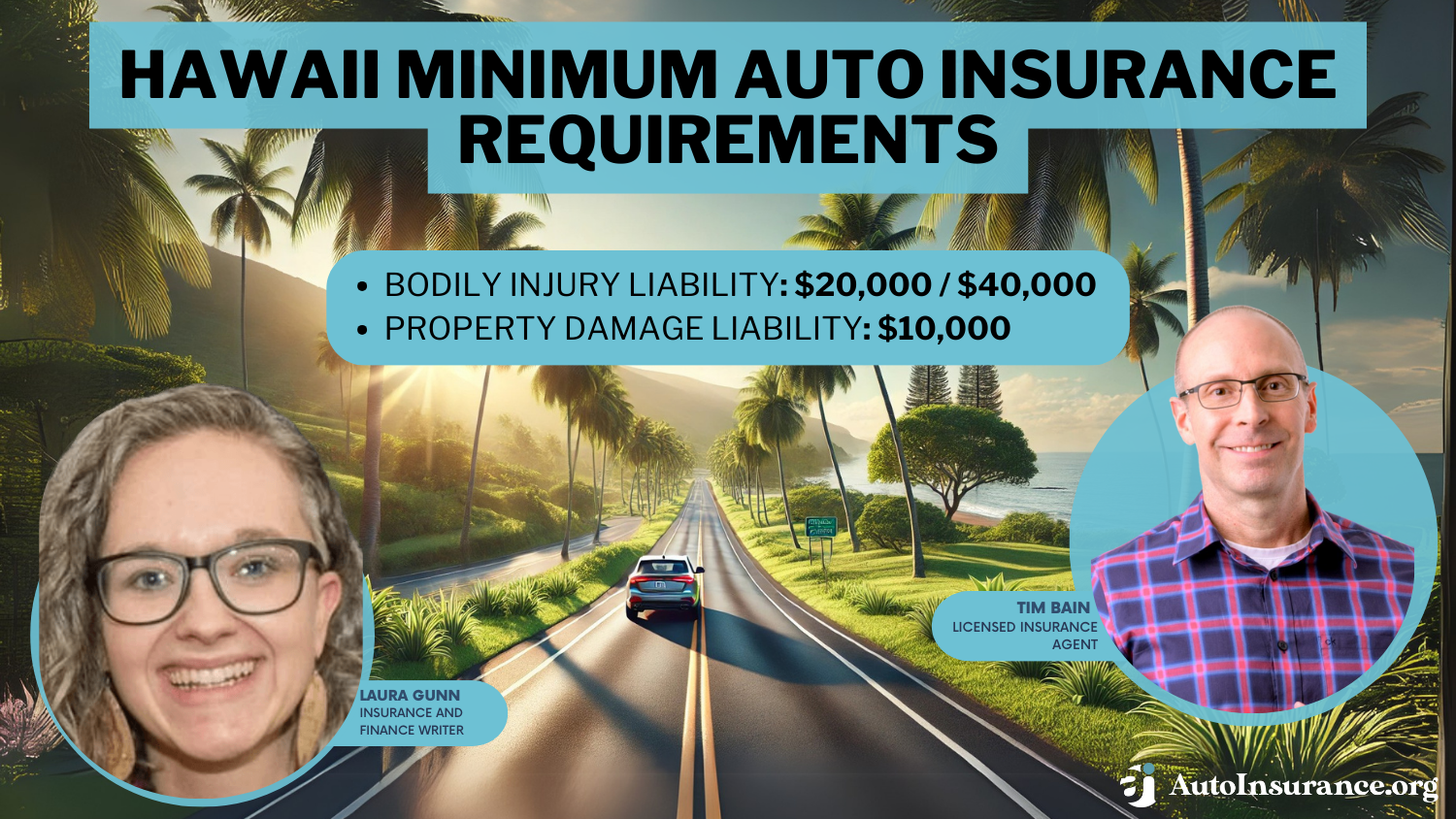Full Coverage Auto Insurance in 2026 (What All Drivers Should Know!)
Full coverage auto insurance offers complete protection with liability, collision, and comprehensive coverages, starting at $119/mo. Our guide explores the benefits of these essential insurance coverages, what factors impact their cost, and compares top providers of full coverage.
Read more Secured with SHA-256 Encryption




Table of Contents
Table of Contents


Licensed Insurance Agent
Heidi works with top-rated insurance carriers to bring her clients the highest quality protection at the most competitive prices. She founded NoPhysicalTermLife.com, specializing in life insurance that doesn’t require a medical exam. Heidi is a regular contributor to several insurance websites, including FinanceBuzz.com, Insurist.com, and Forbes. As a parent herself, she understands the need ...
Heidi Mertlich


Licensed Insurance Agent
Jeff is a well-known speaker and expert in insurance and financial planning. He has spoken at top insurance conferences around the U.S., including the InsuranceNewsNet Super Conference, the 8% Nation Insurance Wealth Conference, and the Digital Life Insurance Agent Mastermind. He has been featured and quoted in Nerdwallet, Bloomberg, Forbes, U.S. News & Money, USA Today, and other leading fina...
Jeff Root
Updated December 2024
Full coverage auto insurance provides robust protection by combining liability, collision, and comprehensive auto insurance coverages.
Explore the factors that influence insurance premiums, such as driving history and vehicle type. By examining these elements, we help drivers understand how to customize their policies for optimal coverage.
Our guide helps you make informed decisions about your auto insurance needs and understand what is fully comprehensive insurance without overspending.
Get started on comparing full coverage auto insurance rates by entering your ZIP code above.
- Full coverage auto insurance begins at $119/month for comprehensive protection
- Customize your policy with liability, collision, and comprehensive options
- Assess providers to secure the best rates and thorough coverage
Full Coverage Auto Insurance Definition
Most states require drivers to carry at least liability auto insurance coverage, which protects others if they cause an accident. However, you must carry full coverage auto insurance to protect you and your vehicle. But what does full coverage mean? And more importantly, how do insurance companies define full coverage insurance?
Full coverage insurance pays for damages to your vehicle from an accident or other causes, such as fire, theft, vandalism, and acts of nature, like hail, tornados, and floods. Liability-only insurance doesn’t cover damage to your car. For instance, with just minimum coverage, if a tree falls on your vehicle, you’ll need to cover the repair or replacement costs yourself, unlike with complete auto insurance.
With full coverage, your comprehensive insurance activates, so understanding the definition of full coverage car insurance is crucial to assess your needs. Although full coverage costs more than the minimum required, it provides greater protection and reduces your out-of-pocket expenses in the event of an accident.
The term “full coverage” is commonly used in auto insurance, but its meaning can be misleading as it doesn’t encompass every potential situation. Additionally, interpretations vary among insurers, so understanding the full coverage car insurance definition is essential as each company may have a different interpretation.
Free Insurance Comparison
Compare Quotes From Top Companies and Save
Secured with SHA-256 Encryption
Making the Right Choice for Your Coverage
Full coverage auto insurance rates vary by age, gender, and driving record. Younger drivers, particularly males, face higher premiums, while experienced drivers with clean records typically have lower rates. This guide details monthly rates for different demographics and driving scenarios, helping you understand the full coverage car insurance meaning and make informed choices.
Full Coverage Auto Insurance Monthly Rates by Age, Gender, & Driving Record
| Age & Gender | Clean Record | One Ticket | One Accident | One DUI |
|---|---|---|---|---|
| Age: 16 Female | $566 | $660 | $705 | $878 |
| Age: 16 Male | $618 | $728 | $774 | $966 |
| Age: 18 Female | $416 | $484 | $529 | $658 |
| Age: 18 Male | $501 | $584 | $635 | $768 |
| Age: 30 Female | $128 | $153 | $179 | $235 |
| Age: 30 Male | $139 | $163 | $192 | $251 |
| Age: 45 Female | $119 | $173 | $173 | $209 |
| Age: 45 Male | $119 | $147 | $173 | $209 |
| Age: 60 Female | $106 | $125 | $148 | $187 |
| Age: 60 Male | $110 | $129 | $153 | $191 |
Auto insurance rates by age, gender, and driving history are key factors in determining the cost of full coverage. Grasping how these factors influence your rates and comparing quotes from different providers will help you find coverage that fits your budget and needs. To ensure you choose the best plan, it’s essential to explore your options and understand the full coverage insurance meaning.
Essential Full Coverage Auto Insurance Options Explained
What is considered full coverage insurance? Full auto coverage isn’t one coverage to add to your policy. Instead, it includes several types of auto insurance coverage. This table lists auto insurance coverages and if they’re typically required:
Full Coverage Auto Insurance Coverage Options Explained
| Coverage Name | What it Covers |
|---|---|
| Liability | Most states require a set amount of liability coverage that protects other drivers in the case of an accident. |
| Comprehensive | This coverage is typically required by your lender or leaseholder. |
| Collision | This provides financial protection for your vehicle. It will pay for damages after a crash. |
| Personal injury protection | This coverage will pay for your own medical costs, including lost wages. |
| Medical payments | Similar to PIP, MedPay covers injury costs but doesn't cover lost wages as PIP does. |
| Uninsured/Underinsured motorist protection | Insurance companies are required to offer this coverage to you, and it will pay for your own damages. |
| Guaranteed auto protection | You may owe more on your vehicle than it's worth because of how quickly cars depreciate. |
| Personal umbrella policy | This option provides an "umbrella" of coverage over several types of insurance. |
| Rental reimbursement | If your car is a total loss or needs repair and in need another vehicle, you should consider this option. |
| Emergency roadside assistance | You can purchase this option from your insurer or a driving club. |
| Pay-As-You-Drive or Usage-based insurance | If you drive very few miles, it might be cheaper for you to purchase this kind of coverage. |
| Non-owner car insurance | This option is for people who do not own a car but borrow one occasionally. |
| Modified car insurance coverage | Adding special coverage for those modifications will protect them. |
| Windshield coverage | Windshield coverage will help you pay for the replacement of your broken glass (check state laws for specifics) |
| Mechanical breakdown insurance | This coverage is similar to a manufacturer's extended warranty. |
Many drivers opt for full coverage, including liability, collision auto insurance, comprehensive auto insurance, and any mandatory coverage like uninsured (UM) motorist coverage. Otherwise, you’ll have to pay for any damages to your vehicle.
Although no state mandates fully comprehensive car insurance, your lender might require it if you have a loan or lease. However, drivers with older, less valuable vehicles or those who can afford repairs or a replacement vehicle out of pocket may not need fully comprehensive coverage.
Keep in mind that full coverage still doesn’t include coverage for every scenario. You’ll need add-ons such as roadside assistance coverage and rental car reimbursement coverage so that your policy offers you all the necessary coverages.
Liability vs. Full Coverage Auto Insurance
Is it better to get liability or full coverage insurance? To decide, first understand what is full coverage and how it compares to liability coverage to determine which best suits your needs.
Full Coverage vs. Liability-Only Auto Insurance Monthly Rates by Provider
| Insurance Company | Liability Only | Full Coverage |
|---|---|---|
| $61 | $160 | |
| $43 | $117 | |
| $33 | $87 | |
| $53 | $139 | |
| $30 | $80 | |
 | $67 | $174 |
 | $32 | $174 |
| $39 | $105 | |
| $33 | $86 | |
| $38 | $99 | |
| $22 | $59 | |
| U.S. Average | $45 | $119 |
As you can see, there’s quite a difference in rates between liability-only auto insurance and full coverage auto insurance. Only Geico and USAA offer monthly rates below $200.
Read More:
Whether you need liability vs. fully comprehensive car insurance depends on your situation. To determine when you might skip full coverage, keep reading to grasp the fully comprehensive car insurance meaning and compare costs for affordable coverage.
Free Insurance Comparison
Compare Quotes From Top Companies and Save
Secured with SHA-256 Encryption
When to Get Full Coverage Auto Insurance
Full coverage includes various protections and offers the most extensive coverage, but not everyone needs it. Some drivers may choose minimum coverage and handle damages on their own. So, do you need full coverage? If you have a car loan, lease, or can’t afford to repair your car, full coverage is recommended. Consider full coverage if you:
- Full coverage comprises various coverages and protects you the most.
- Consider full coverage if you have a car loan or lease or can’t afford repairs.
- Essential for those driving expensive vehicles, living in high-crime or severe weather areas.
- Needed if you commute in high-traffic areas or can’t afford repairs/replacement.
- Most lenders require full coverage for financed cars; gap insurance may also be needed.
Do I need full coverage insurance to finance a car? Most lenders require full coverage to protect their investment. You may also need gap insurance, which covers the difference between what you owe and your car’s value.
When should you avoid fully comprehensive insurance? Generally, drivers with low-value cars or sufficient savings for repairs might opt for liability-only coverage. For example, if your car is valued at $2,000 with a $1,000 deductible, your insurer would only cover $1,000 in damages. If your car is paid off and you have savings, liability-only coverage may be the more economical choice.
Read More: When should I drop my full coverage auto insurance?
Full Coverage Auto Insurance Cost
Full coverage car insurance is more expensive due to the extensive protection it provides. The higher cost reflects the increased likelihood of claims, as insurers take on more risk with additional coverages. While liability insurance is cheaper, it requires you to pay for car repairs out of pocket, which could be more costly over time. The table below compares average rates from top insurers by coverage type.
Full vs. Minimum Coverage Monthly Insurance Rates by Provider
| Insurance Company | Rates |
|---|---|
| $160 | |
| $117 | |
| $87 | |
| $97 | |
| $87 | |
| $80 | |
 | $174 |
 | $115 |
| $105 | |
| $86 | |
| $99 | |
| $59 | |
| U.S. Average | $119 |
Full coverage costs approximately $224 more per month than liability coverage. Given that it protects you from out-of-pocket expenses for vehicle damages, many drivers find the higher rates justified. To understand the full scope of benefits, it’s helpful to explore what is full coverage auto insurance.
You might wonder, which gender pays more for car insurance? What age group pays the most for car insurance? What’s the cheapest insurance for new drivers? Well, insurance rates depends on many factors combined, so compare cheap full coverage auto insurance quotes from the best companies to get the most affordable premiums.
How to Save on Full Coverage Auto Insurance Costs
There are several ways to lower full coverage car insurance rates without sacrificing the protection you need. First, raise your auto insurance deductible to reduce your premiums. An auto insurance deductible is the amount you pay out-of-pocket before your insurance takes over, helping to understand what is considered full coverage auto.
Having your auto insurance and your home insurance with the same provider, called bundling, can slash up to 20% off of your auto insurance rate.Scott W. Johnson Licensed Insurance Agent
Choosing between a $500 or $1,000 deductible depends on your circumstances. Higher deductibles usually result in lower overall rates, but require more out-of-pocket expenses. Consider leveraging auto insurance discounts. Most insurers offer savings based on the driver, policy, and vehicle, and bundling discounts can enhance your savings. For a clearer understanding, refer to the fully comprehensive insurance definition.
For example, you may be eligible for a good driver, paid in full, or an anti-theft auto insurance discount. Many discounts may not automatically apply to your policy, so inquire about available discounts. Lastly, consider whether is full coverage worth it by comparing options from different providers.
Every insurer offers different rates, so compare full coverage car insurance rates and discounts from the top auto insurance companies to find the best deal. Remember the many factors that affect auto insurance rates, and how each company looks at them differently. Shop around to find an insurer with low rates, various discounts, and one that considers your personal factors favorably to understand what does full car insurance cover.
Free Insurance Comparison
Compare Quotes From Top Companies and Save
Secured with SHA-256 Encryption
Maximizing Protection With Full Coverage Auto Insurance
Fully comp insurance includes liability, collision, comprehensive, and state-required coverages. Although it is more expensive, it provides the highest level of protection for your vehicle. Drivers with a loan or lease might need fully comp insurance, while those with older cars or the ability to pay for repairs may choose to forgo it.
data-media-max-width=”560″>
Are you on the search 🛒for after-Christmas sales? Take this time to look for discounts🤑 on car insurance. Some companies advertise you could save 30% or more with discounts. https://t.co/27f1xf1ARb has all the details 👉 https://t.co/JEnTbtVTG3 pic.twitter.com/1Ij2RJscFM
— AutoInsurance.org (@AutoInsurance) December 26, 2023
You can lower premiums by raising your deductible and using discounts. Knowing where to compare auto insurance rates from different providers helps you find affordable full coverage. If your rates are too high, consider switching providers or seeking more discounts.
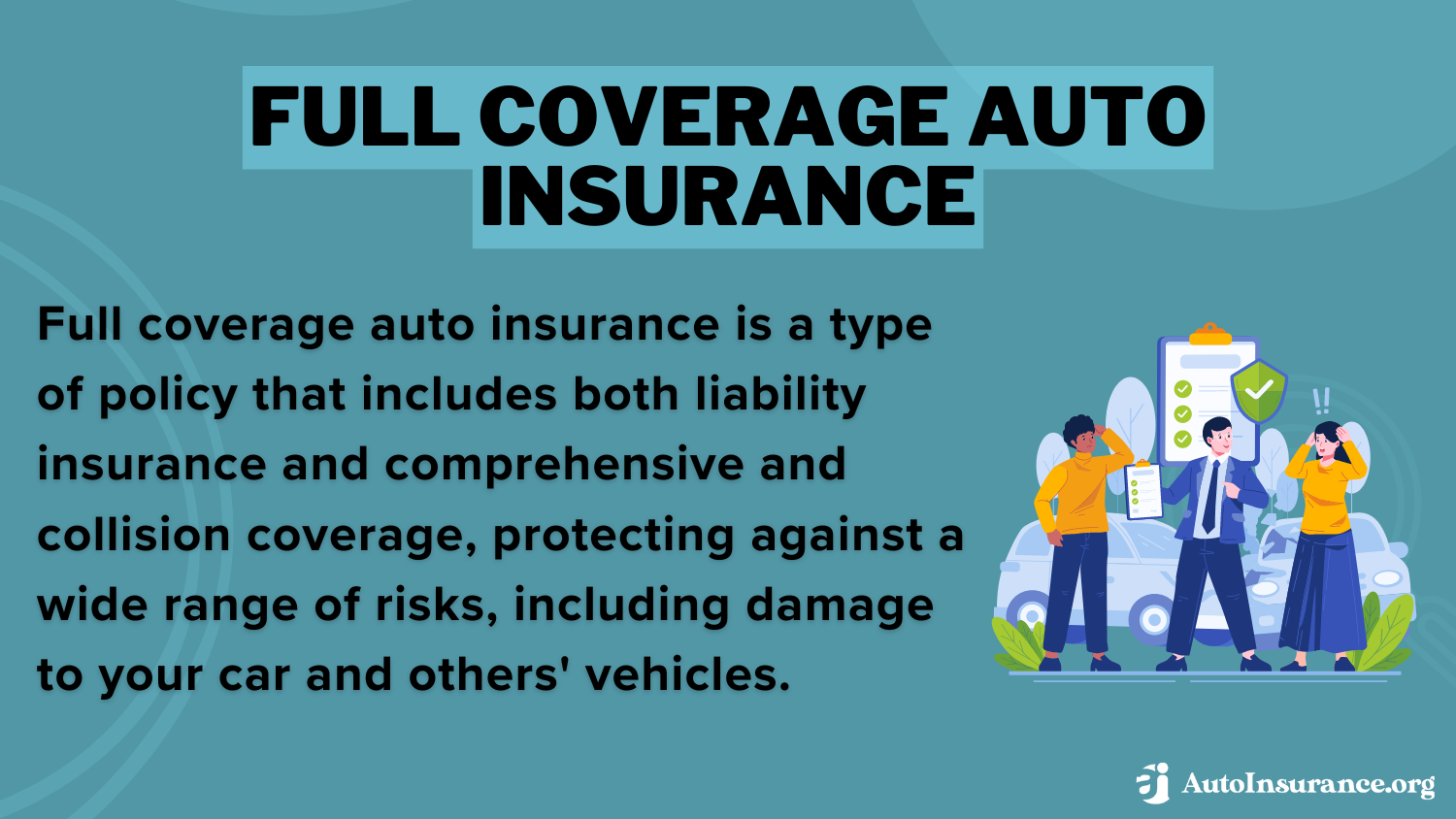
Frequently Asked Questions
Is full coverage worth it?
Whether full coverage is worth it depends on your situation. For example, if you have a car loan or lease, you probably don’t have a choice since most lenders require full coverage. However, if you can afford to pay for repairs to your vehicle out of pocket, you may choose liability-only coverage.
Full coverage is an excellent option for drivers who own expensive vehicles, live in areas where their car is likely to be damaged, and can’t afford to pay for repairs themselves.
What does full auto coverage cost?
Full coverage auto insurance costs $119 monthly on average.
For more information, check out our comprehensive guide titled “What is auto insurance?” to learn everything you need to know.
What factors affect my full coverage auto insurance cost?
Full coverage auto insurance quotes get impacted by age, gender, insurance company, coverage options, driving record, and much more.
Is full coverage auto insurance mandatory?
No state laws require full coverage auto insurance. However, if you have a lease or loan on your vehicle, the lender or leasing company may require you to carry full coverage until the lease or loan is paid off.
And you might wonder, should I tell insurance I paid off my car? Almost always the answer to that is yes. Once a car is paid off, you may need to make changes to your insurance coverage.
What doesn’t full coverage auto insurance include?
Full coverage typically doesn’t include add-ons, like roadside assistance, gap coverage, accident forgiveness, and rental car reimbursement. In addition, while you can add various additional coverages, full coverage generally doesn’t include them.
For more information, explore our detailed guide titled “Cheap Full Coverage Auto Insurance” for a quick overview.
What are the pros of full coverage auto insurance?
Full coverage auto insurance provides several advantages that go beyond standard policies, offering comprehensive protection for your vehicle and peace of mind.
- Enhanced Protection: Full coverage offers a comprehensive range of protections for your vehicle and other parties involved in an accident.
- Peace of Mind: With full coverage, you have financial protection against a wide range of risks, reducing your worries about potential losses.
- Vehicle Replacement: In the event of a total loss, full coverage can help cover the cost of replacing your vehicle.
With enhanced protection and the ability to cover vehicle replacement, full coverage ensures you’re financially safeguarded against various risks on the road.
What are the cons of full coverage auto insurance?
While full coverage auto insurance offers extensive protection, it comes with a few drawbacks that drivers should consider.
- Higher Premiums: Full coverage policies generally have higher premiums compared to basic liability insurance due to the increased level of protection.
- Deductibles: You may be required to pay a deductible before your full coverage auto insurance kicks in, which can be a significant out-of-pocket expense.
- Age and Value Limitations: Full coverage may not be cost-effective for older vehicles or those with low market value, as the cost of coverage may exceed the potential payout.
With higher premiums, deductibles, and potential limitations for older vehicles, full coverage may not always be the most cost-effective choice for every driver.
What is the best car insurance for full coverage?
Generally, USAA, Geico, and State Farm have the best rates for full coverage car insurance. However, you should get a quote to know for sure.
For a deeper understanding, refer to our in-depth report titled “Best Auto Insurance” for all the details you need.
Does full coverage insurance cover your engine?
If your engine gets affected by theft, vandalism, natural disasters, or animal collisions, your full coverage will pay out via comprehensive insurance. However, your policy won’t cover you if your engine fails.
Use our free comparison tool below to see what auto insurance quotes look like in your area.
What is fully comprehensive insurance for cars?
Insurance fully comprehensive refers to auto insurance that offers extensive protection for your vehicle. While full coverage car insurance may vary by provider, it generally includes protection for damage to your vehicle, other vehicles, property, and injuries to yourself or others, regardless of fault.
What is the difference between full coverage and comprehensive insurance?
What does full coverage usually cover?
What’s the difference between collision and comprehensive coverage?
What is the cheapest insurance for full coverage?
Get a FREE Quote in Minutes
Insurance rates change constantly — we help you stay ahead by making it easy to compare top options and save.

